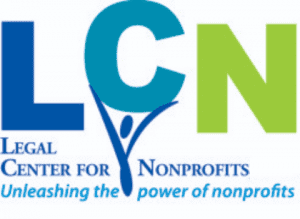In May 2012, Brown University, a tax-exempt entity, agreed voluntarily to pay the city of Providence, Rhode Island, an additional $31.5 million over the next eleven years. This payment in lieu of taxes (PILOT) is in addition to what Brown is already paying the city in lieu of property tax on its properties.
Variations on the theme are also being tried, such as creating specific fees which are then charged to nonprofits. In St. Cloud, Minnesota, for example, the cost of streetlights was removed from the property tax, and a “streetlight fee” created, which the city charged to nonprofits as well as for-profit entities.
In 2009, the City of Boston created a task force to study PILOTs and develop recommendations that could lead to further use of PILOTs and additional revenues for the city, which already had one of the largest and longest-standing PILOT programs in the country. The task force recommended that, although the program should remain voluntary, it should be applied to all nonprofits; it did, however, state an exception for small nonprofits whose real property assessed value is less than $15 million.
PILOTs are payments requested by cities and towns from nonprofits who own real property within their boundaries. Property taxes make up a significant portion of municipal budgets. As a result, cities and towns where nonprofits own real property view the tax that would otherwise be generated by that property as lost revenue. At the same time, nonprofits are using municipal services such as sewer, water, police, and fire protection. What’s a city to do? That’s where PILOTs come in.
Boston, with its many private, tax-exempt colleges, museums and hospitals, has been vigorous in negotiating PILOTs. In FY2009, Boston added $15.7 million to its coffers through PILOT payments from nonprofits. Overall in Massachusetts, 85 communities have some type of PILOT with some nonprofits.
Although legislation submitted in Massachusetts last year died with the end of 2012, new legislation is in the works. The Dartmouth Chronicle reported in December that the town of Westport’s Select Board voted to support the Massachusetts Municipal Association’s (MMA) proposed legislation on PILOTs.
Here is MMA’s blurb about their proposed PILOT bill, part of their 2013-2014 legislative package:
“Payments in lieu of taxation by organizations exempt from the property tax
“The MMA bill would allow cities and towns, upon local acceptance, to require certain tax-exempt charitable organizations to make payments in lieu of taxation (PILOTs) to host cities and towns equal to 25 percent of what they would pay if their property were not exempt. The bill would require cities and towns to adopt bylaws or ordinances to provide for agreements between the municipality and the tax-exempt property owners that may provide for exemptions, consideration of community benefits, and administration of payments.” (emphasis mine) (Source: http://www.mma.org/advocacy-mainmenu-100/legislative-package)
Boards of directors of nonprofits owning real property need to be aware of PILOTs. Keep the following points in mind, should your city or town come knocking on your door asking you to pay your “fair share”:
- PILOTs cannot be required by cities and towns; PILOTs are voluntary payments. To make PILOTs involuntary would make them a tax.
- Historically, the work of nonprofits in their communities has been seen as an offset to the cost of services provided by cities and towns, and this continues to be an important argument for all nonprofits to make.
- Nonprofit funds may not be easily allocable to pay a PILOT. Charitable gifts income to nonprofits is generally restricted to expenditure for the nonprofit’s charitable exempt purpose. While operating funds might be available to pay a PILOT, will donor generosity continue if the funds are used to pay a PILOT? In a climate where gifts to support operations are already hard to come by, should such funds be diverted to PILOTs? Organizations that receive fees for services may be better positioned to make PILOTs.
- Once a PILOT is paid, it will be difficult to not pay it next year.
- PILOTs are not appropriate for all municipalities or all nonprofits, and blanket PILOTs that demand the same level of payment from all nonprofits in a municipality are unwise and potentially unworkable. Instead, communities should consider carefully the types of nonprofits within their boundaries and work together with their nonprofit communities to develop an approach.
- Negotiations underpinned by a solid understanding of the rationale for tax-exemption are key to successful PILOT programs, but negotiations can also be costly in terms of time and funds.
Stay tuned!
This has been a brief overview of a complex subject. For more detailed information, check out these resources:
- Massachusetts Nonprofit Network, Frequently Asked Questions on PILOTs
http://www.massnonprofitnet.org/content/uploads/2011/06/PILOT-FAQs.pdf
- “Payments in Lieu of Taxes: Balancing Municipal and Nonprofit Interests”, a report of the Lincoln Institute of Land Policy, available to download free of charge here:
http://www.lincolninst.edu/pubs/1853_Payments-in-Lieu-of-Taxes
